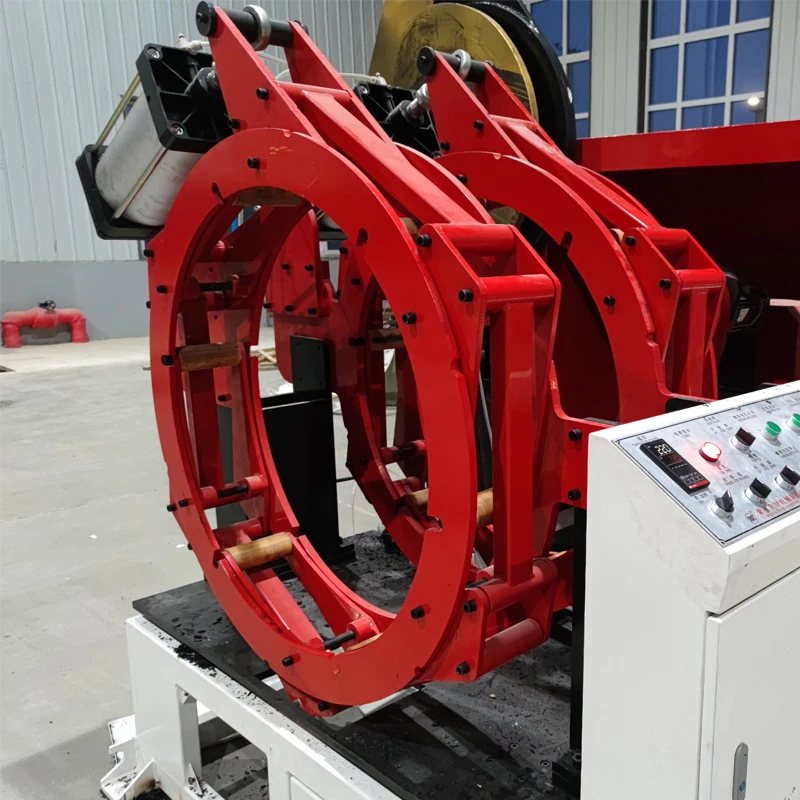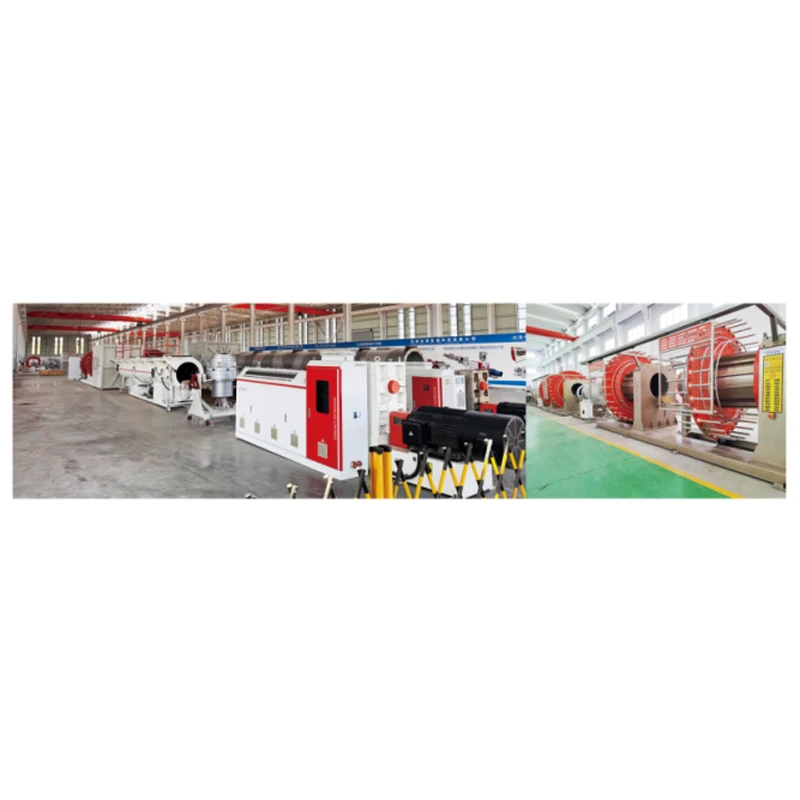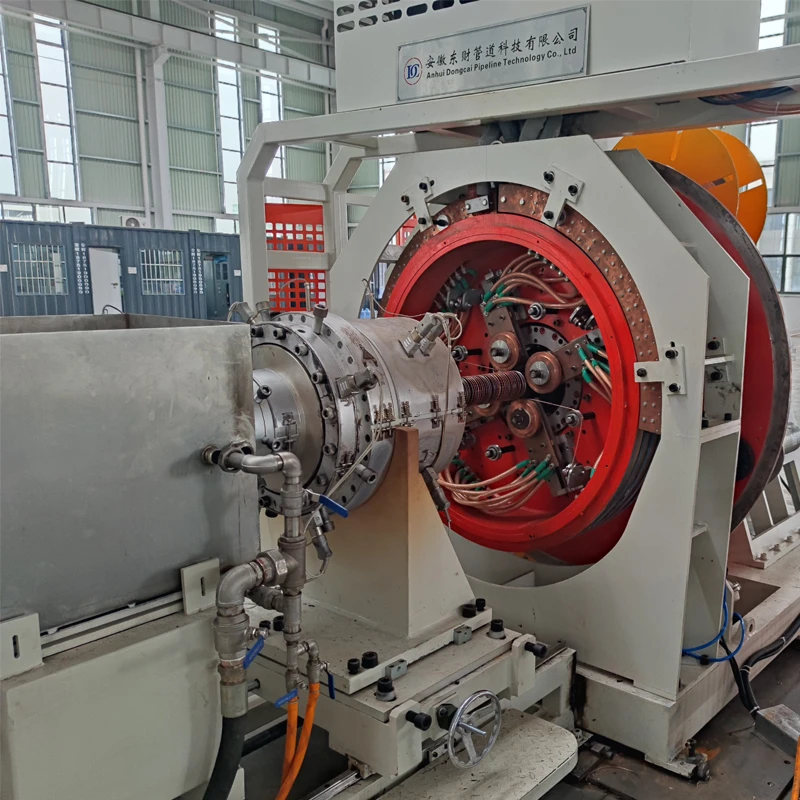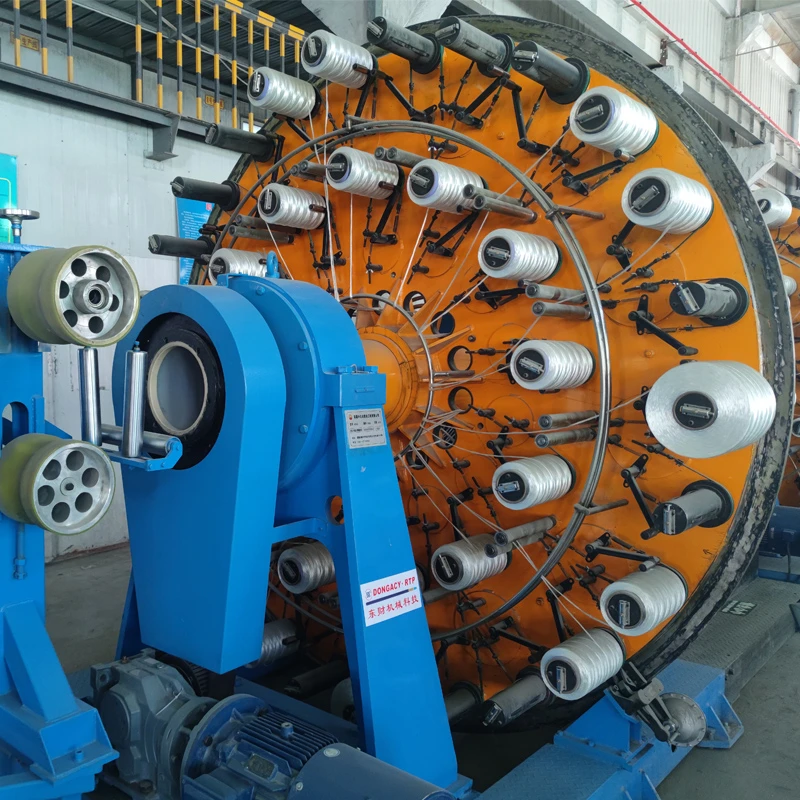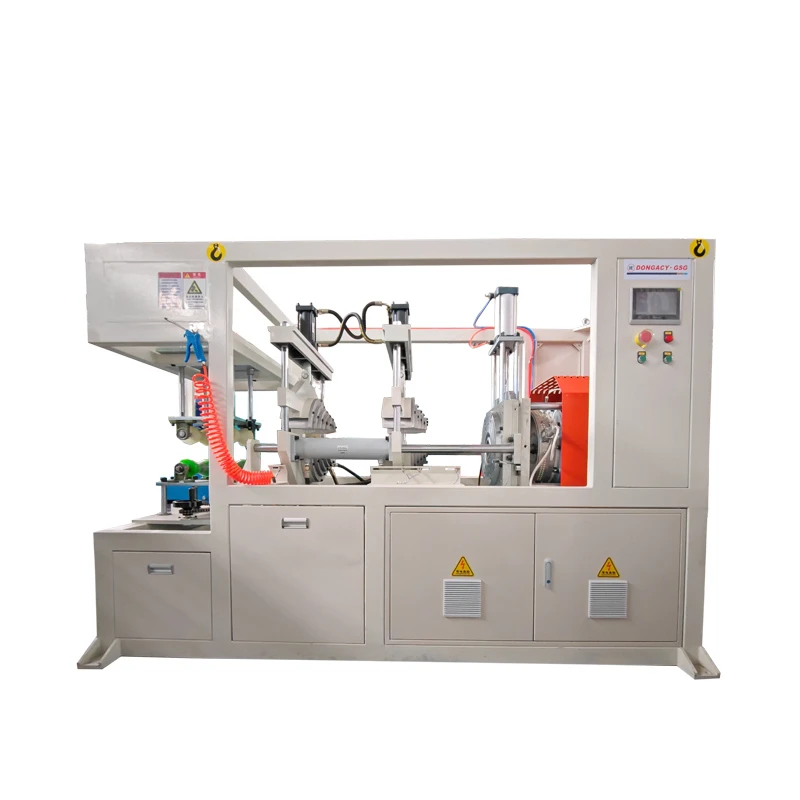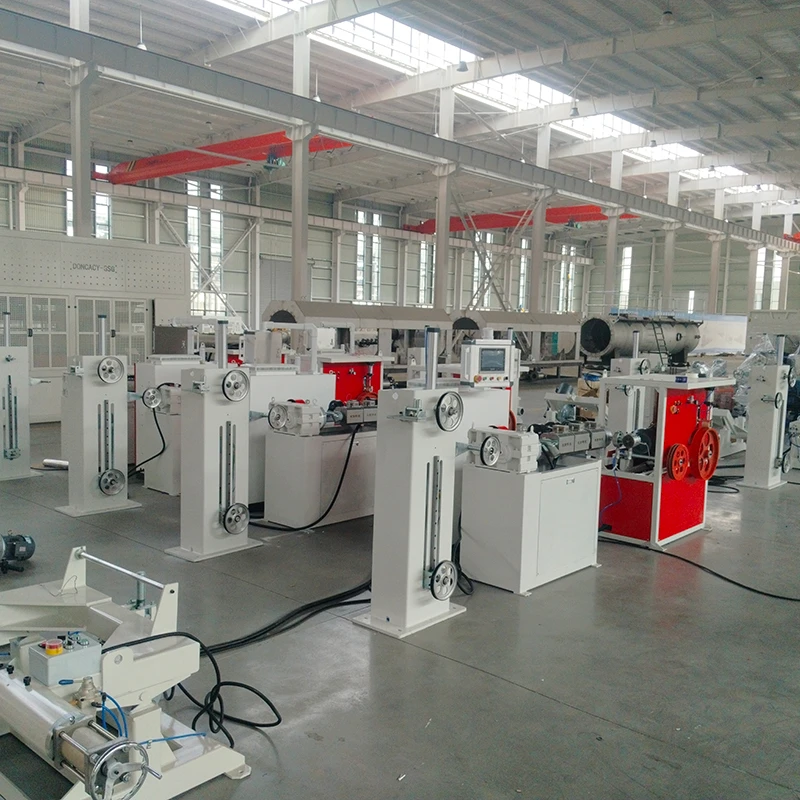
- Introduction to Recycled Plastic Extrusion Machine: Market Trends and Data Insights
- Technical Advantages of Modern Extrusion Technologies
- Leading Recycled Plastic Extrusion Machine Manufacturers: Comparative Analysis
- Tailored Customization: Meeting Unique Production Demands
- Real-world Application Cases: Quality, Efficiency, and Sustainability
- Economic Impacts and Environmental Contributions
- Conclusion: Embracing Efficiency with a Recycled Plastic Extrusion Machine
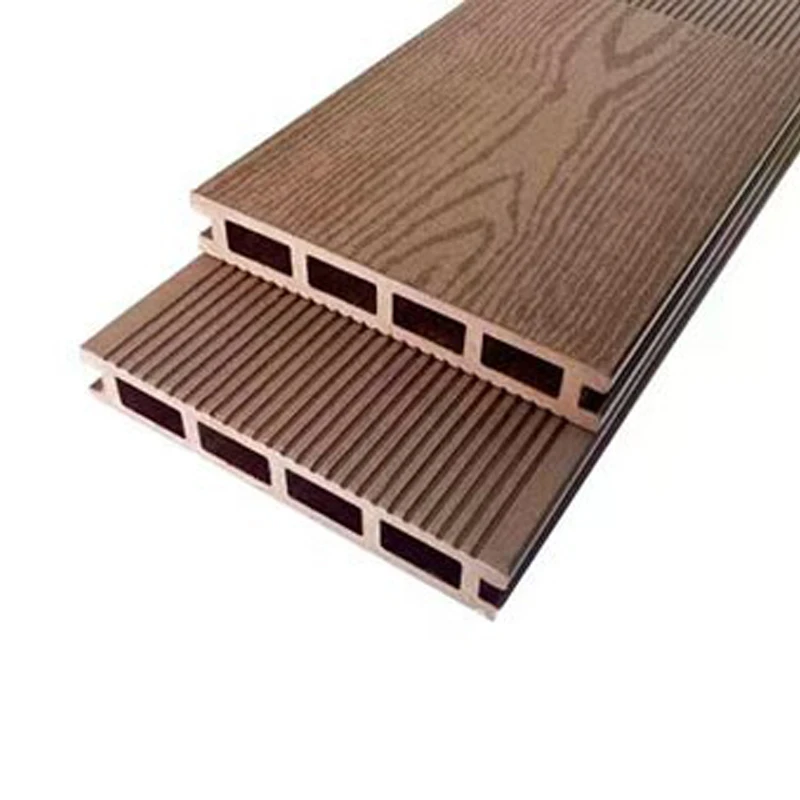
(recycled plastic extrusion machine)
Introduction to Recycled Plastic Extrusion Machine: Market Trends and Data Insights
Over recent years, the industrial push for sustainability has led to a surge in the adoption of recycled plastic extrusion machine
s. According to the Global Plastic Recycling Market Report, the global plastic recycling market reached $43.5 billion in 2023 and is anticipated to grow at a CAGR of 7.9% through 2028. The expanding pressure from government regulations and increased consumer awareness have driven manufacturers across various industries – from packaging to automotive – to integrate recycled plastic extrusion technologies into their production lines.
In this setting, a recycled plastic extrusion machine stands as a cornerstone of the circular economy, ensuring not only the transformation of post-consumer and post-industrial waste into high-quality products but also the preservation of natural resources. As per Statista (2023), the volume of plastic waste processed in Europe through extrusion increased from 4.2 million metric tons in 2018 to 5.8 million metric tons in 2022. With such growth projections, manufacturers are increasingly seeking advanced extrusion machines to scale their operations efficiently.
Technical Advantages of Modern Extrusion Technologies
The pursuit of efficiency has fueled significant advancements in the design of recycled plastic extruder systems over the last decade. Modern plastic pipe extrusion machines can process an array of polymer types, including HDPE, LDPE, PP, and PVC, while delivering exceptional product consistency. High-torque, low-speed screw technologies minimize wear, improving equipment lifecycle by 20-30% compared to conventional systems.
Another notable advantage is energy efficiency. Data from Plastics Technology Magazine highlights that new-generation extruders can lower energy consumption by up to 30%, attributable to innovations like infrared preheating, optimized gear reductions, and advanced PLC controls. This translates to considerable cost savings and a lower carbon footprint for manufacturers.
Digital automation further enhances product quality and repeatability through real-time monitoring and feedback loops, a necessity for ensuring uniformity in pipe and profile production. In addition, improved venting technologies facilitate the processing of lower-quality recyclates, expanding the application breadth for recycled plastic extrusion machines in demanding industries.
Leading Recycled Plastic Extrusion Machine Manufacturers: Comparative Analysis
The global marketplace offers a diverse landscape of recycled plastic extrusion machine manufacturers, each emphasizing unique selling points such as throughput rates, energy efficiency, and specialization. Below is a comparative table highlighting three top-tier suppliers and their respective attributes:
| Manufacturer | Core Technology | Max Output (kg/h) | Energy Consumption (kWh/kg) | Warranty |
|---|---|---|---|---|
| MAAG Group | High-Torque Single & Twin Screw | 5,000 | 0.22 – 0.27 | 24 Months |
| Gneuss Kunststofftechnik | Rotary Filtration, Advanced Degassing | 3,000 | 0.19 – 0.25 | 18 Months |
| Qingdao Friend Machinery | Custom Modular Twin Screw | 2,200 | 0.24 – 0.28 | 12 Months |
These manufacturers not only differ in output and warranty but also in the depth of after-sales support and global reach. Such data-driven comparisons aid buyers in selecting machinery aligned with specific throughput and energy targets, ensuring the long-term viability of investments.
Tailored Customization: Meeting Unique Production Demands
No two production environments are identical, and the ability to customize plastic extrusion solutions is a significant competitive advantage. Leading recycled plastic extruder suppliers now offer an array of modular components: from specialized screw designs for processing diverse material grades to intelligent dosing and feeding systems.
Custom control panels allow for seamless integration with factory-wide Industry 4.0 protocols, enabling predictive maintenance and remote diagnostics. Bespoke cooling and hauling systems can be engineered to support products as varied as microbore pipes or extruded profiles in construction and electrical conduit markets.
Furthermore, customers may request specialized die heads or pelletizing equipment, aligned with requirements ranging from medical tubing compliance to food-grade packaging standards. This flexibility ensures that every recycled plastic extrusion machine is calibrated for optimal cost-efficiency and superior product characteristics.
Real-world Application Cases: Quality, Efficiency, and Sustainability
The practicality of a plastic pipe extrusion machine is best appreciated through its application in complex, real-world manufacturing scenarios. Consider a leading European construction materials supplier that implemented a modular recycled plastic extruder line, specifically optimized for 60% post-consumer HDPE content. As a result, the company achieved:
- A 42% reduction in virgin plastic usage year-over-year
- Quality benchmarks surpassing ISO 1873-2 standards (tensile strength at 26 MPa)
- Production throughput increases of 18% versus legacy extrusion lines
- Energy consumption dropped from 0.33 kWh/kg to 0.24 kWh/kg
- Annual savings of over $480,000 in operational costs
Similarly, in the food packaging industry, a North American manufacturer adopted a twin-screw recycled plastic extrusion machine enabling safe production of multi-layer thermoform sheets from mixed PET streams, winning recognition for its recycled content by several multinational retailers. This demonstrates the power of extrusion technology to enable not just regulatory compliance, but environmental leadership and commercial advantage.
Economic Impacts and Environmental Contributions
The integration of recycled plastic extrusion technologies brings transformational changes to both economic performance and environmental metrics of manufacturing operations. On average, producers utilizing state-of-the-art plastic pipe extrusion machines record an operational cost reduction of 28% within the first three years, primarily driven by reduced raw material expenditure and process automation.
On the environmental front, the use of recycled feedstock in conjunction with energy-efficient extrusion lines is projected to upcycle over 8 million metric tons of plastic waste annually worldwide by 2028 (PlasticsEurope). This intervention not only diverts waste away from landfills and incineration streams but also significantly curbs greenhouse gas emissions, supporting the lifecycle sustainability commitments demanded by end-users and regulators alike.
Conclusion: Embracing Efficiency with a Recycled Plastic Extrusion Machine
The evolution of the recycled plastic extrusion machine underscores its critical role in the modern manufacture of pipes, profiles, and packaging solutions from reprocessed polymers. Its robust technical advantages, paired with data-driven manufacturer selection and bespoke customization opportunities, enable industries to embrace efficiency, sustainability, and product innovation.
By establishing the right partnerships and leveraging tailored configurations, businesses can future-proof their operations, meet stringent market and environmental targets, and maximize the value captured from every kilogram of recycled plastic processed. As the circular economy gains further momentum, investments in advanced extrusion machinery will remain key to bridging the gap between ecological responsibility and commercial growth.
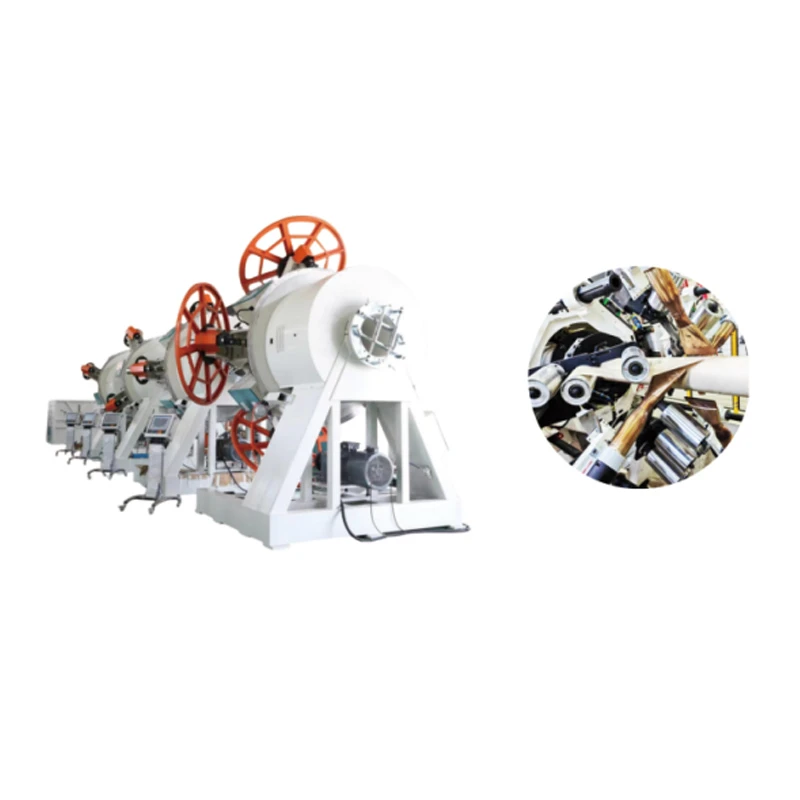
(recycled plastic extrusion machine)
FAQS on recycled plastic extrusion machine
Q: What is a recycled plastic extrusion machine?
A: A recycled plastic extrusion machine processes and melts recycled plastic materials into continuous profiles or shapes. It enables efficient repurposing of waste plastics into usable products. The machine plays a vital role in plastic recycling industries.Q: How does a recycled plastic extruder work?
A: A recycled plastic extruder melts, mixes, and forces recycled plastic through a shaped die. This transforms plastic waste into pipes, sheets, or custom profiles. The extruder ensures consistency and uniformity in the final output.Q: What materials can be processed by a plastic pipe extrusion machine?
A: Plastic pipe extrusion machines can process various plastics, such as PE, PP, PVC, or recycled plastics. These materials are melted and molded into pipes of different diameters and applications. Using recycled materials is increasingly popular for sustainability.Q: What are the benefits of using recycled plastic in extrusion machines?
A: Using recycled plastic reduces raw material costs and minimizes environmental impact. It transforms plastic waste into valuable new products. These practices support a circular economy for the plastics industry.Q: Is maintenance required for recycled plastic extrusion machines?
A: Yes, regular maintenance is necessary to ensure optimal performance and longevity. Cleaning and checking components like heaters and screws are crucial. Preventive care helps avoid breakdowns and maintains product quality.-
PVC Profiles: The Future of Durable and Cost-Effective Construction SolutionsNewsJun.06,2025
-
PVC Pipe Extrusion LineNewsJun.06,2025
-
High-Quality Polyethylene Pipe Production LineNewsJun.06,2025
-
High-Performance Tube Production LineNewsJun.06,2025
-
Advanced Plastic Pipe Production LineNewsJun.06,2025
-
Hdpe Steel Wire Mesh Reinforced Polyethylene Skeleton PipeNewsJun.06,2025
-
Tube and Pipe ManufacturingNewsMay.14,2025

